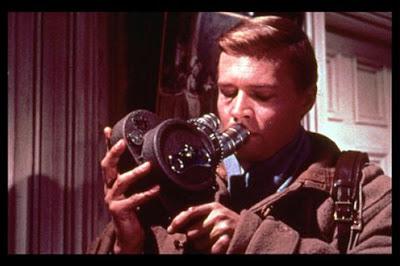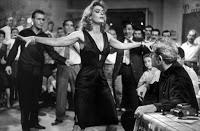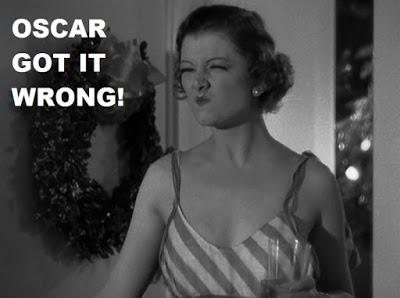Billy Wilder: The Apartment (winner)
Jules Dassin: Never on Sunday
Alfred Hitchcock: Psycho
Jack Cardiff: Sons and Lovers
Fred Zinnemann: The Sundowners
What’s Missing

1960 was a great year for movies, and as is often the case, about half of the nominees demonstrate this. As typical, I’ll start with the movies I like but that I realize would never really get nominated in a million years. These include George Pal’s work on The Time Machine, Wolf Rilla for Village of the Damned, and Lewis Gilbert for Sink the Bismarck. The double-whammy of being not in English and based in horror likely kept both Mario Bava (Black Sunday) and Georges Franju (Eyes Without a Face) off the docket. I’m honestly a little surprised that Jean-Luc Godard didn’t show up with Breathless. Stanley Kubrick never got the love he deserved from the Academy, which explains the miss on Spartacus. Westerns are often overlooked as serious film, which is why we didn’t get The Magnificent Seven and John Sturges nominated. While I might not nominate Richard Brooks for Elmer Gantry, this does feel like a miss. I would absolutely nominate Stanley Kramer for Inherit the Wind. Finally, Michael Powell was clearly overlooked for Peeping Tom. Given the movie’s reputation in 1960 (and what it did to Powell’s career), this is not a shock, but with hindsight being 20/20, it’s a serious miss today.
Weeding through the Nominees

5. In my opinion, The Sundowners has a couple of things going for it. Deborah Kerr is really good in it. It’s also pretty and has massive and beautiful landscapes. I think it’s a movie that was nominated specifically because it looks great on a big screen. With so many good movies that were genuinely improved by their directors to choose from, I can’t really say that I want to see The Sundowners on this list. That’s nothing against Fred Zinnemann, who was a damn fine director. This just isn’t his best work.

4. I wasn’t a massive fan of Sons and Lovers, either, although much of that comes specifically from the story that is being told. That’s not Jack Cardiff’s fault, since with Best Director I am more concerned with the storytelling than the story itself. But it’s hard to divorce that completely. This is a story that seems to ride on the idea of Oedipus pretty firmly, and that’s a turn-off. Ultimately, I don’t really know what Cardiff did to tell the story here other than just tell the story. Again, it’s a case where I don’t know what work he did to really make this his.

3. I was surprised by Never on Sunday as a movie. It’s a film that has as its tremendous upside the fact that it doesn’t take the clichéd route through everything and manages to earn the ending it wants to have. I like that in a movie, but that’s also a case for the screenplay, not the director. Jules Dassin did good work here, but the best parts of the movie are the story itself and the free-spirited and wonderful performance by Melina Mercouri. I don’t hate this nomination, but I’m not sure I love it for this award.

2. I am a fan of Billy Wilder in no small part because of how versatile he was in the director’s chair. The Apartment is a fine movie, and one that demonstrates just about everything that I think of when I think of Billy Wilder. It’s funny and tragic and sardonic. It’s mean-spirited in places, but not in a really mean-spirited way. There’s mischief here, but it exists to cover up the heartbreak that lies at the heart of the film. I get why Wilder won, and he’s a good choice. He’s just not the best choice.
My Choice

1. The position of this blog has always been that ties go to the Academy, which is why I’m giving this to Hitchcock for Psycho. I can’t really think of a reason to give this to Michael Powell over Hitch, although I am tempted. The genius of Hitchcock is that Psycho works even when you know the ending, and that he spends so much time building sympathy for a character who ultimately doesn’t really deserve it. Sure, Powell does the same thing, but, as I said, ties go to the Academy. And really, Hitchcock should have won at least one competitive Oscar in his career.
Final Analysis

